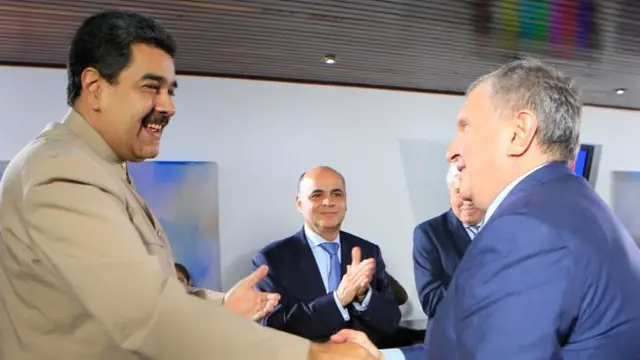Critically ill patients are being evacuated from the besieged Syrian rebel-held enclave of eastern Ghouta, but the fate of hundreds of others with life-threatening conditions remains unresolved.
The International Committee of the Red Cross (ICRC) in Syria said its staff, along with those of the Syrian Arab Red Crescent (Sarc), had “begun the evacuation of critical medical cases from eastern Ghouta to central Damascus” on Wednesday.
The Syrian American Medical Society (Sams) said four patients had been taken to hospitals in Damascus, the first of 29 critical cases approved for medical evacuation, and the remainder would be evacuated over the coming days. They include 18 children and four women with heart disease, cancer, kidney failure and blood diseases.
The news was confirmed by the official Syrian government news agency, and appears to follow local negotiations as well as several humanitarian appeals from high-profile figures including King Abdullah of Jordan, Recep Tayyip Erdoğan, Turkey’s president, and Sergei Lavrov, Russia’s foreign minister.
The Sams advocacy manager, Mohamad Katoub, tweeted that five people had been approved for the first group of evacuations. It was not clear why only four of the five left.
Almost 400,000 residents of eastern Ghouta, one of the last remaining rebel strongholds in Syria, have been caught in a regime siege for the last five years, and some have been in urgent need of medical attention for months.
Although the area is designated by Russia, Iran and Turkey as a de-escalation zone, the Syrian government has until now refused to lift the siege, claiming the area is held by opposition rebels bent on attacking the capital, Damascus. A near total blockade has been in force for almost eight months, pushing up the price of food and medicines.
Eastern Ghouta has been subjected to ceaseless bombardment and was targeted in a sarin gas attack by Assad’s forces in 2013, which, despite international condemnation, did not lead to direct reprisals from the
The evacuations are part of a complex exchange of detainees between Assad’s government and the rebel group Jaysh al-Islam, an opposition faction formed by a merger of Islamist groups in 2013 that was initially funded by Saudi Arabia.
Sarc said the evacuations were the result of “long negotiations”. An ICRC spokeswoman declined to give more details, citing the sensitivity of the operation and the risk that the deal might yet collapse.
Jaish al-Islam (Army of Islam) confirmed the rebels had agreed to free some of their prisoners in return for the evacuations. “We have agreed to the release of a number of prisoners … in exchange for the evacuation of the most urgent humanitarian cases,” the group said a statement.
Pressing for more evacuations, Fayez Arabi, a spokesman for the opposition-held Rural Damascus Health Directorate, said: “The number of people awaiting evacuation due to inadequate medicine and medical supplies has now surpassed 600.”
Erdoğan has offered to take all the patients most in need of treatment into hospitals in Turkey.
The UN has been waiting months for the Syrian authorities to provide “facilitation letters” to allow the aid operation to get under way.
Hamish de Bretton-Gordon, director of Doctors Under Fire, a charity working with hospitals in the district, said the evacuations were a ray of light in the six-year conflict, and hoped that the deal might lead to a wider ceasefire.
Writing in the Guardian last week, De Bretton-Gordon had appealed to Russia’s president, Vladimir Putin – a key ally of Assad’s – to show mercy. “Medieval siege techniques have resulted in no aid for four years,” the jointly authored article said. “Children, in particular, are dying of starvation in sight of the Lebanese and Jordanian borders.”
According to news agencies, once the deal was negotiated, families waited in the darkness in the rebel-held town of Douma for their children to board ambulances bound for hospitals in Damascus.
Three children were among the first four patients to leave, a Sarc official told Agence France-Presse. According to agency reports, the first four were a girl with haemophilia, a baby with the autoimmune disorder Guillain-Barré, a child with leukaemia, and a man in need of a kidney transplant.
Meanwhile, Lavrov said on Wednesday that a Moscow-proposed peace congress scheduled for next month was crucial for reaching a settlement in Syria and was not hampering UN-led talks.
On Tuesday several dozen Syrian opposition groups had issued a series of statements saying the talks in Sochi next month were an attempt to circumvent the UN-led peace process.
Lavrov, who was meeting the Syrian opposition leader, Ahmad Jarba, on Wednesday, told Russian news agencies that the Sochi congress would lay the groundwork for UN-led talks.
The Russian foreign minister cited “broad support” for the Sochi talks among Syrians and said Russia’s goal was to gather the largest number of opposition groups possible to help launch constitutional reform.
(THE GUARDIAN)
 简体中文
简体中文

